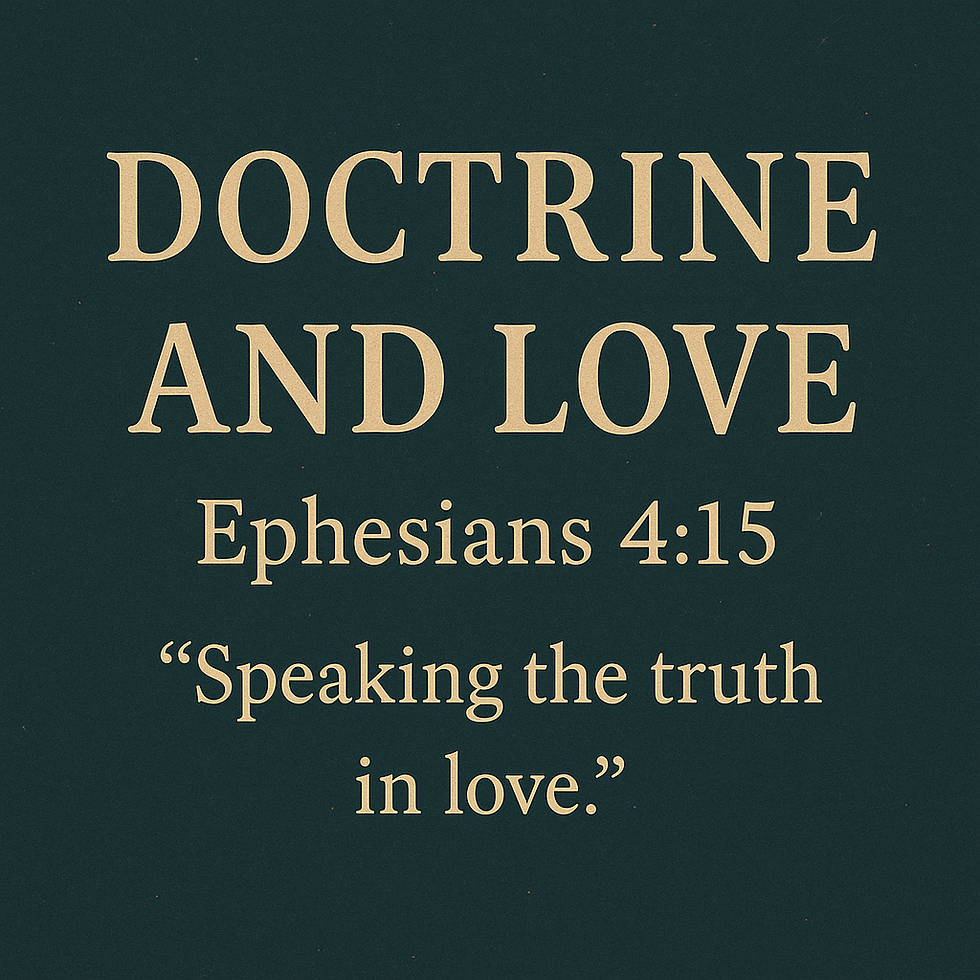Day 12: Rome’s Corruption & the Reformation
- Corby Davis
- Sep 15, 2025
- 2 min read
Scripture Reading:
“All Scripture is inspired by God and profitable for teaching, for reproof, for correction, for training in righteousness, so that the man of God may be equipped, having been thoroughly equipped for every good work.” – 2 Timothy 3:16–17, LSB
History provides sobering lessons about the importance of doctrine. In the Middle Ages, the church of Rome had drifted far from the truth. Scripture was no longer the supreme authority. Instead, traditions, papal decrees, and human superstitions dominated. The gospel was obscured by practices such as indulgences, penance, and prayers to saints. What happens when doctrine is neglected? Corruption flourishes.
Martin Luther saw this firsthand. Outraged by the sale of indulgences—false promises that forgiveness could be purchased—he nailed his Ninety-Five Theses to the door of the Wittenberg Castle Church in 1517. His protest was not against ritual alone but against a church that had abandoned the doctrine of justification by faith. Luther insisted, “The church’s true treasure is the holy gospel of the glory and grace of God” (Ninety-Five Theses, Thesis 62).
John Calvin later emphasized that the church is healthy only when built upon God’s Word. He declared, “The Word of God is the sole principle of all true religion” (Institutes, 1.6.2). The Reformation was a return to sound doctrine. Sola Scriptura—Scripture alone—meant that God’s Word, not church tradition, was the ultimate authority. Sola Fide—faith alone—meant salvation is received by trusting Christ, not earned through works or rituals.
The corruption of Rome shows us the danger of neglecting doctrine. Without truth, the church became a marketplace of superstition. Holiness was replaced with greed, worship with idolatry, and salvation with bondage. J. I. Packer rightly said, “The Reformation was essentially the recovery of the gospel” (Truth and Power, p. 71).
But the Reformation also reminds us of God’s mercy. He does not abandon His church. In every age, when truth is obscured, He raises up voices to call His people back to His Word. That is why doctrine matters: it is the difference between bondage and freedom, corruption and reformation, death and life.
Beloved, the Reformation is not just history. It is a reminder that the church today must also guard against corruption by clinging to sound doctrine. Whenever we are tempted to put tradition, experience, or culture above God’s Word, we are walking Rome’s path. Whenever we return to Scripture alone, we are walking the Reformation’s path. Doctrine protects, reforms, and gives life.
Personal Reflection
What dangers arose when Rome abandoned Scripture as the highest authority?
How did the Reformation recover and protect the gospel?
Why are creeds like Sola Scriptura and Sola Fide vital to the health of the church?
In what ways does the modern church face temptations similar to medieval Rome?



Comments